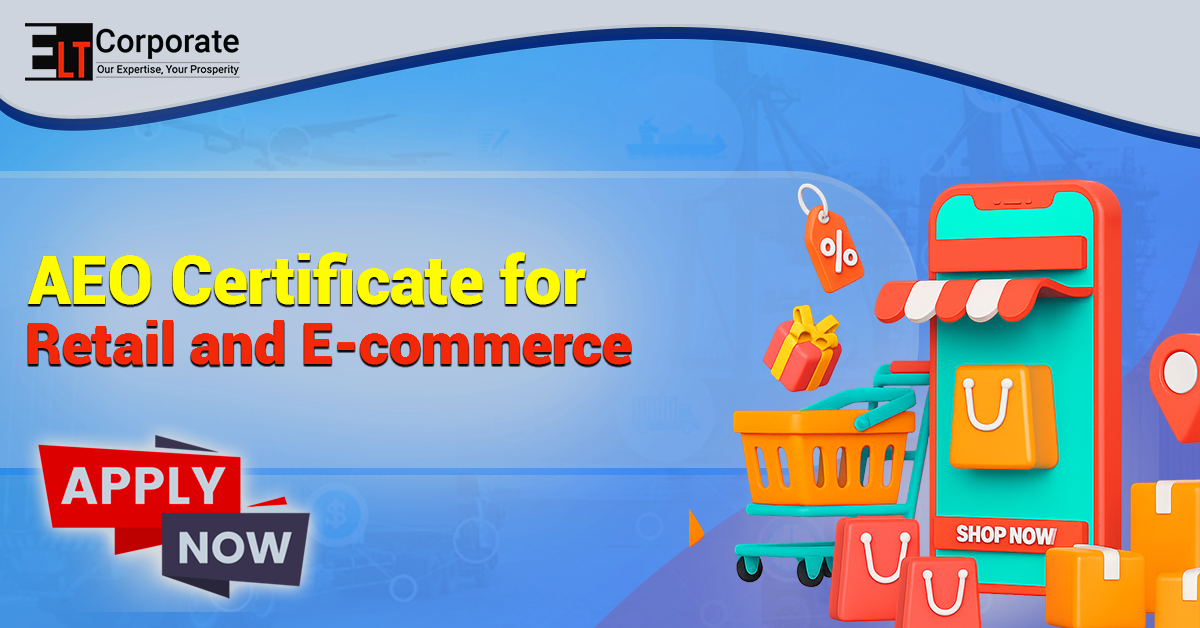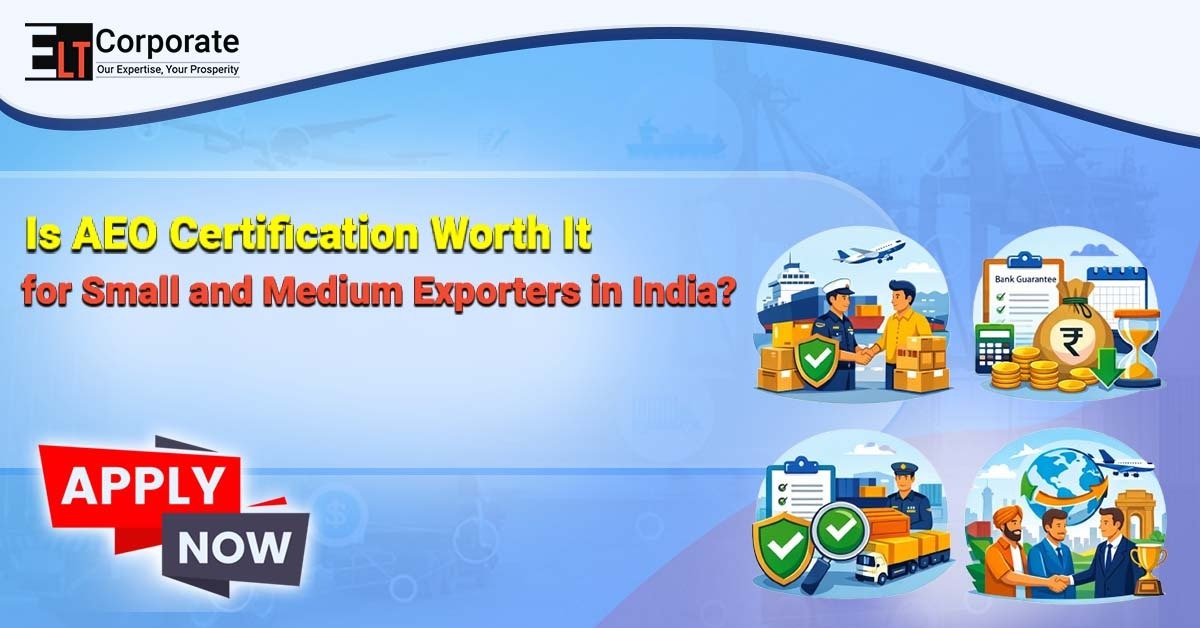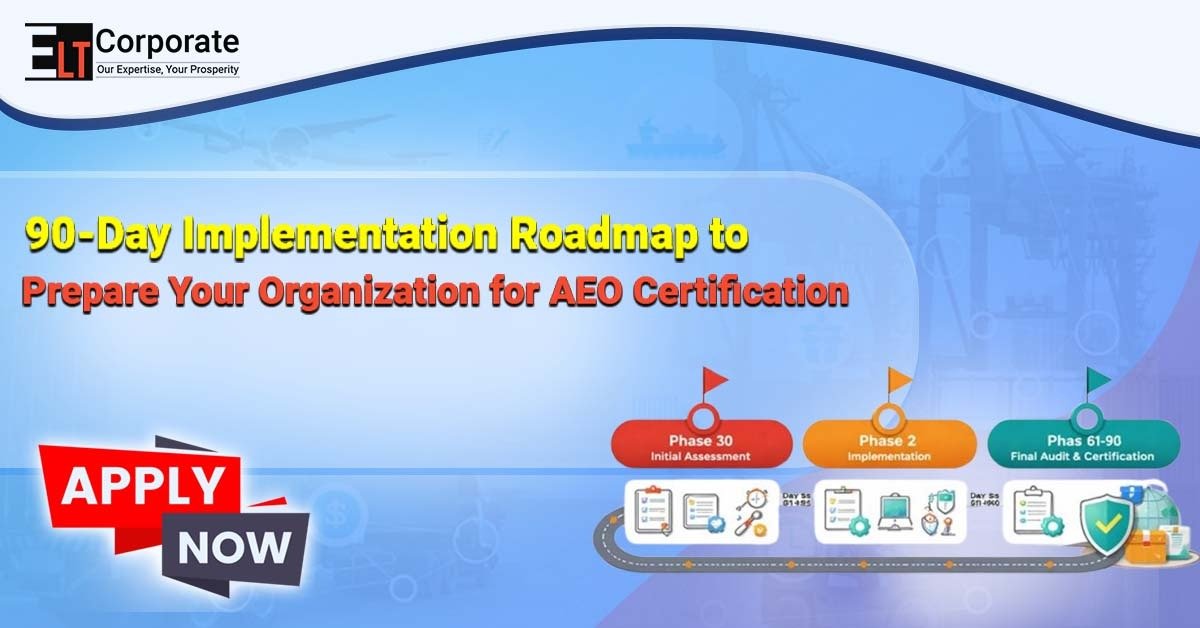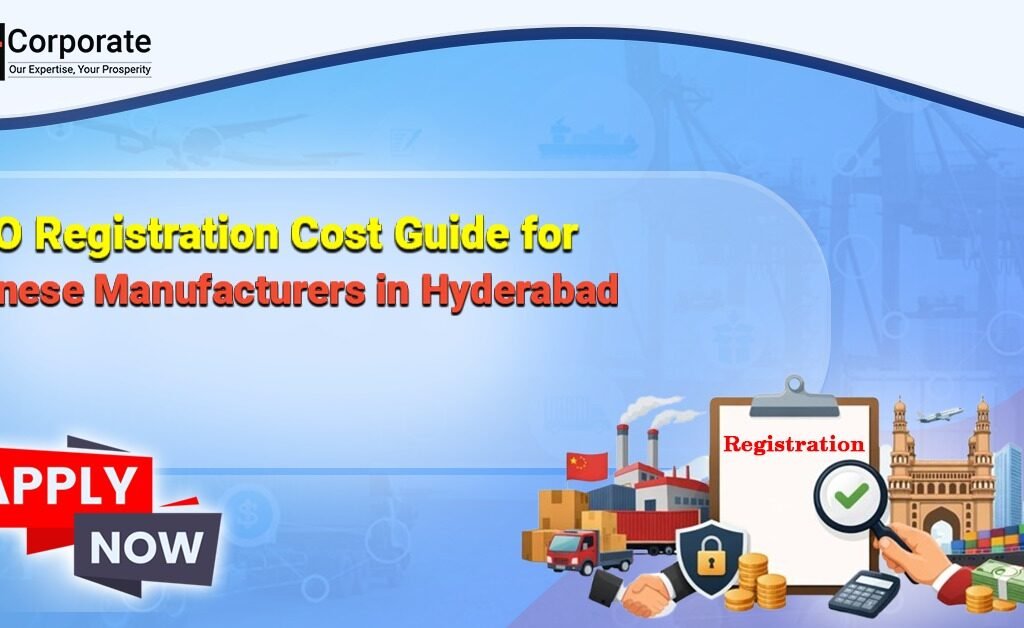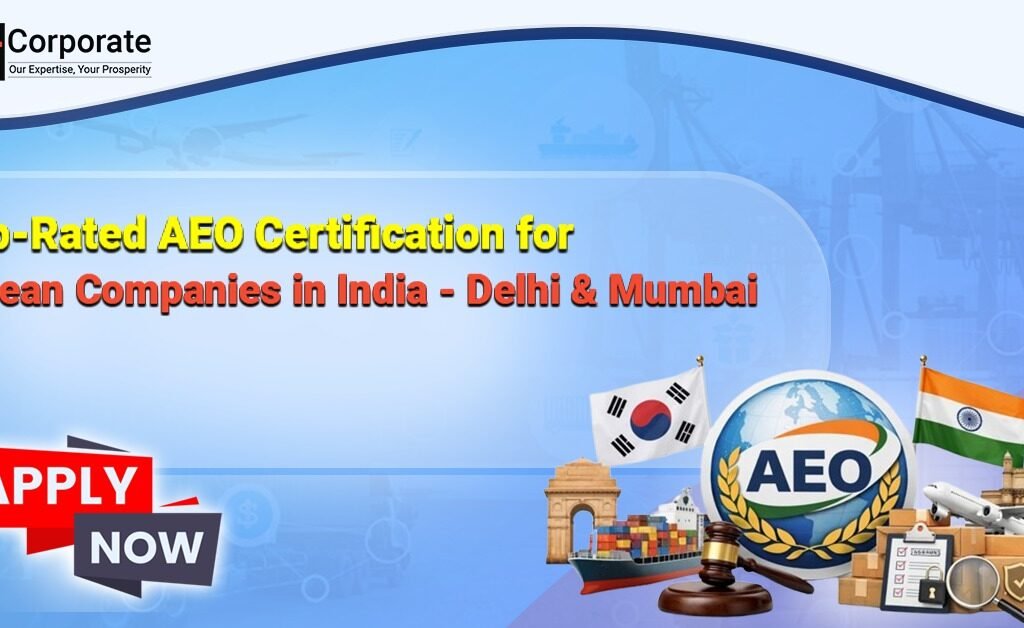Are you someone who is experiencing delays in e-commerce deliveries that impact warehouse operations? Want to start your retail, e-commerce business or import and export trading?
Then the AEO certificate can help you boost your efficiency., The Authorised Economic Operator (AEO) certificate offers smoother customs processing, fewer inspections, and global recognition.
In this detailed guide, we’ll explain the eligibility, required documents, application process, and benefits of obtaining an AEO Certificate specifically for retail and e-commerce businesses, as per CBIC guidelines.
What Is the AEO Certificate?
The full form of AEO is Authorised Economic Operator is given by the Central Board of Indirect Taxes and Customs (CBIC) under the World Customs Organisation (WCO) SAFE Framework of Standards. For business firms, it is a kind of validation certificate that permits businesses that maintain high compliance standards, strong security standards, and good financials.
Once you get certified as an AEO retailer and e-commerce businessman, then there are so many perks to it, like you can enjoy faster imports and exports, reduced checks, and customs across international borders.
Eligibility Criteria for Retailers & E-commerce Businesses
Whether you’re a B2B wholesaler, a direct-to-consumer (D2C) brand, or a large e-commerce aggregator, you’re eligible to apply for AEO certification if:
- You have a valid Importer Exporter Code (IEC)
- You have been engaged in import/export activities for at least 3 years
- You maintain a clean customs and tax compliance history
- You operate secure and trackable warehousing/logistics
- Your financial accounts and SOPs reflect transparency and traceability
AEO Categories for Retail & E-commerce
AEO Tier: Ideal For Key Requirements
AEO-T1 Small e-commerce startups Basic compliance, online-only processing
AEO-T2 Mid-level retailers with warehouse ops SOPs, physical inspection, safety procedures
AEO-T3 Large aggregators like Flipkart, etc. Strong customs history, multi-year compliance
Documents Required for AEO Application
Here’s a list of the most commonly required documents for retail/e-commerce entities applying for AEO:
- IEC Certificate
- GST Registration Certificate
- Certificate of Incorporation
- PAN Card of the Company
- Financial Statements for the last 3 years
- Process flow for Import/Export operations
- Warehouse/Facility Site Plan
- IT Security & Inventory Control SOPs
- Agreement copies with shipping/logistics partners
- Company Solvency Certificate and Self-Declaration
- Annexure A (Basic Info) & Annexure B (Security Questionnaire)
Process to Apply for an AEO Certificate
1: Choose the Right Tier
Choose from AEO-T1, T2, or T3 depending on your business size, warehouse network, and export-import volumes.
2: Register on the AEO Portal
Visit https://aeoindia.gov.in and create your user profile.
3: Fill Application Forms
Submit Annexure A (business profile)
Submit Annexure B (for T2 and T3 only – security practices)
4: Upload Required Documents
Make sure all documents are clear, updated, and arranged per the official CBIC checklist.
5: Physical Verification (T2 & T3 only)
Customs officials may visit your warehouse or fulfilment centre to inspect processes, security systems, SOPs, and document practices.
6: Customs Review and Approval
T1: Reviewed entirely online
T2 & T3: Reviewed through a mix of physical audit and document validation
AEO Certificate Processing Time
AEO-T1 Around 30 working days
AEO-T2 60–90 working days
AEO-T3 Up to 120 working days
Key Benefits of AEO for Retail & E-commerce
- Priority clearance at ports/airports
- Reduced physical inspections and paperwork
- Direct port delivery (DPD) & port entry (DPE)
- Faster return processing for international orders
- Lower financial guarantees (Bank BG/Waivers)
- Global recognition through Mutual Recognition Agreements (MRAs)
- Faster Amazon Global or Flipkart Export shipping clearances
Why Hire Professionals for AEO?
For retail & e-commerce companies, AEO compliance requires detailed SOPs, warehouse safety protocols, and tech documentation
Professionals can:
- Draft tailor-made SOPs for retail/e-com fulfilment
- Conduct internal security assessments
- Handle all form submissions without error
- Coordinate with CBIC/customs for quick inspection clearance
Conclusion
Nowadays, AEO Certification is not just for exporters—it’s now a standard mark for every retailer or e-commerce business involved in import and export. It fastens the customs processing, improves international credibility, and builds trust with customers and partners.
If you want to get your AEO certificate easily without any problem, we are here to help you. Get in touch with ELT Corporate for end-to-end support

